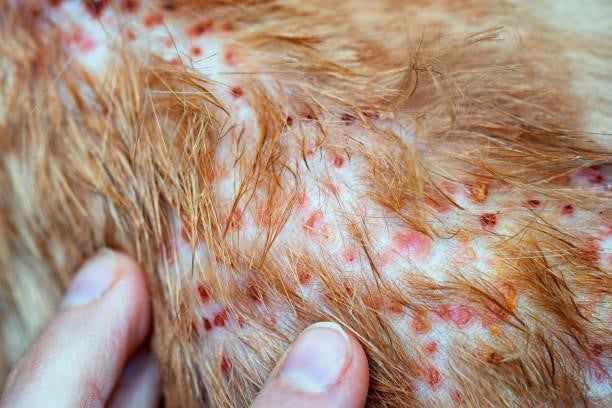
Dogs are known for their love of chewing on things, and it's common to see them with a stick in their mouth. While chewing on sticks may seem harmless, it can actually be dangerous for dogs. In this article, we will explore whether dogs can chew on sticks, what can cause them to do so, and how to prevent it.
What Does Chew on Sticks Mean?
When we talk about dogs chewing on sticks, we mean that they are using their teeth to bite and break pieces off of a stick or branch. Some dogs enjoy the texture and taste of wood, while others may chew on sticks as a way to alleviate boredom or anxiety.
Can Dogs Chew on Sticks?
While dogs can certainly chew on sticks, it is not a safe or recommended behavior. Sticks can splinter and break into sharp pieces, which can cause serious injury to a dog's mouth or digestive tract. If a dog ingests a piece of stick, it can cause blockages or perforations in their digestive system.

What Can Cause Dogs to Chew on Sticks?
Dogs may chew on sticks for a variety of reasons, including:
Boredom
Dogs that are left alone for long periods of time or have limited opportunities for exercise and play may chew on sticks out of boredom.
Anxiety
Dogs that suffer from separation anxiety or other forms of anxiety may chew on sticks as a way to cope with their stress.
Nutritional deficiencies
Dogs that are not getting all the nutrients they need from their diet may be more likely to chew on sticks or other non-food items.
Dental issues
Dogs with dental problems such as gum disease, loose or broken teeth, or an abscess may chew on sticks as a way to relieve discomfort.
Natural instinct
Some dogs have a natural instinct to chew on objects, including sticks, bones, and toys.
Lack of appropriate chew toys
If a dog doesn't have access to appropriate chew toys, they may resort to chewing on sticks or other objects.
Attention-seeking behavior
Some dogs may chew on sticks to get their owner's attention or as a way to initiate play.
Habit
Once a dog starts chewing on sticks, it can become a habit that's difficult to break.
It's important to identify the underlying cause of a dog's chewing behavior in order to address it effectively. If the behavior is due to boredom or lack of exercise, providing more opportunities for play and exercise can help. If anxiety is the cause, working with a veterinarian or behaviorist to develop a treatment plan may be necessary. Providing appropriate chew toys and keeping the dog's teeth and gums healthy can also help prevent destructive chewing behavior. If you're concerned about your dog's chewing behavior, consult with your veterinarian for advice and recommendations.

How to Prevent Dogs from Chewing on Sticks
Preventing dogs from chewing on sticks is important for their safety and well-being. Here are some tips to help prevent this behavior:
- Provide appropriate chew toys: Giving your dog appropriate chew toys can satisfy their need to chew and help prevent them from chewing on sticks. Choose toys that are made for dogs and are durable enough to withstand their chewing.
- Provide plenty of exercise and mental stimulation: Dogs that are bored or anxious may be more likely to chew on sticks. Providing plenty of exercise and mental stimulation can help alleviate these issues. Take your dog for daily walks or runs, play fetch or tug-of-war, and provide puzzle toys or games that challenge their mind.
- Supervise your dog: If your dog is outside, keep an eye on them to make sure they are not chewing on sticks or other inappropriate objects. If you see your dog chewing on a stick, intervene immediately and redirect them to an appropriate chew toy.
- Train your dog: Teaching your dog the "leave it" command can help prevent them from chewing on sticks or other objects that they shouldn't. Start by placing an object on the ground and telling your dog to "leave it." Reward them with a treat when they comply. Practice this command frequently in different situations until your dog is able to resist the temptation to chew on sticks.
- Keep your yard clean: Make sure your yard is free of sticks and other debris that your dog could potentially chew on. If you have trees or shrubs in your yard, regularly trim them to prevent branches and twigs from falling to the ground.
- Use deterrent sprays: There are several types of sprays that are designed to deter dogs from chewing on objects. These sprays typically have a bitter taste or unpleasant odor that dogs find unappealing. Spray the deterrent on objects that your dog may be tempted to chew on, such as furniture legs or baseboards.
- Address underlying issues: If your dog's chewing behavior is due to anxiety, boredom, or a lack of appropriate chew toys, addressing these issues can help prevent them from chewing on sticks. Work with a veterinarian or a behaviorist to develop a plan to address the underlying cause of the behavior
Concluding words
In conclusion, dogs may chew on sticks for a variety of reasons, including boredom, anxiety, dental issues, natural instinct, lack of appropriate chew toys, attention-seeking behavior, and habit. Identifying the underlying cause of a dog's chewing behavior is important in order to effectively prevent it. Providing appropriate chew toys, plenty of exercise and mental stimulation, supervision, training, keeping your yard clean, using deterrent sprays, and addressing underlying issues are all effective ways to prevent dogs from chewing on sticks. By taking steps to prevent this behavior, you can help keep your dog safe and healthy. If you're concerned about your dog's chewing behavior, consult with your veterinarian for advice and recommendations.



